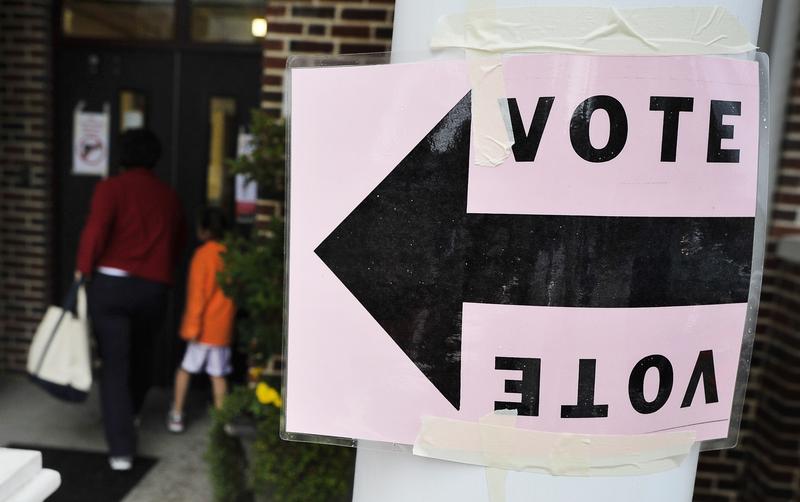
Newt Gingrich won more than 40 percent of the evangelical Christian vote in last week's South Carolina primary, easily besting Rick Santorum, long considered a social conservative favorite, in the early primary where bible-believing Christians hold the most sway.
But with attention now on Florida, evangelicals are still a major constituency. They make up 25 percent of the state. Even as they attempt to appeal to senior citizens and relocated northerners in the Sunshine state, the remaining candidates are working to convince evangelicals they will carry Christian values to the White House. But defining just what those values are is getting more complicated.
A generation ago an evangelical Christian was – nearly by definition – a conservative Republican, someone who went to the voting booth almost exclusively over abortion or gay rights. But as the evangelical movement matures and diversifies beyond its rural Southern roots, a broader range of issues are motivating how adherents engage in political life, said Marcia Pally, author of The New Evangelicals, Expanding the Vision of the Common Good.
While abortion and gay rights – described in evangelical terms as sanctity of life and family issues- still hold primary sway for millions, walk into an evangelical church today and you are just as likely meet the group working to green the church building and fund grassroots economic development in Uganda as to find the pro-life committee, Pally said.
“When I was doing my field work I couldn't find a church anywhere that was NOT doing environmental protection, racial reconciliation or an economic justice project,” said Pally, who spent the past seven years visiting everywhere from ex-urban mega churches in California to tiny rural congregations in the deep South.
Evangelicals might still pull the lever for whichever candidate is opposed to abortion, but between elections huge numbers are lobbying those officials to support immigration reform that keeps families together, expand child tax credits, ensure clean air and water and craft economic policies that are fair to church brethren in the third world.
The National Association of Evangelicals, which represents 45,000 churches and millions of evangelical Christians, has dramatically broadened the range of issues it considers morally important. Its central public policy document, “For the Health of the Nation” includes opposition to abortion and gay marriage, but also serious commitment to ending poverty, protecting the environment and fostering peace. A recent document urges evangelicals to oppose nuclear weapons.
“When you look at those issues as a whole, that's a broad vision for what we think the common good requires,” said Galen Carey, vice president of government relations for the association. He pointed out that while exit polling in 2008 found 60 to 70 percent of evangelicals voted Republican, “That means 30 to 40 percent didn't.”
A coalition of evangelical leaders endorsed Rick Santorum, but as his poor showing in evangelical-heavy South Carolina revealed, the 26 percent of Americans, in at least 14 different denominations who identify as evangelical Christians aren't controlled by such conferences of older ministers. Far from being locked into the furthest right of Republican candidates, 32 percent of white evangelical Christians under age 30 voted for Obama in 2008.
The latest Pew Forum on Religious Life, US Religious Landscape Survey found 54 percent of evangelicals agreed with the statement, “Stricter environmental laws and regulations are worth the cost.” Thirty-five percent said they cost too many jobs and hurt the economy. And while 50 percent said the government needs to do more to protect morality, 40 percent said the government is too involved in morality.
It's a movement that has been percolating through Christian colleges and seminaries for a generation, said Charles Dunn, an historian of American political and religious history and professor at Regent University, the school founded by Pat Robertson. “The thought processes change and these people go into the pulpits and the classrooms,” he said. But the shifting understanding of Christian responsibility in the public realm has brought with it bitter divides. “There are big fights and huge disagreements,” Dunn said.
Those loyal to the traditional evangelical understanding argue the eco-councils and fair trade committees are losing sight of Christianity's true mission, Dunn said.
“You are watering down the faith. That is exactly what they would say. It gets to this matter, what is more important, the regeneration of your soul or the reformation of society? The historical evangelical focuses on the regeneration of the soul, whereas the people interested in the social gospel believe the reformation of society is more important and in fact many believe you can usher in the kingdom of God on earth through the levers of government,” Dunn explained.
Richard Land, president of the Southern Baptist Convention's Ethics and Religious Liberty convention is one of those tradition evangelicals, heading the lobbying wing of the staunchly conservative denomination, who would be expected to decry the watering down of evangelical fervor.
Instead, he compared strict immigration laws like the one in Georgia to the Fugitive Slave Act and quoted the biblical admonition to welcome the stranger. “We have the mandate to give a cup of water to someone who is thirsty and you don't need to check their immigration status to do that,” he said.
Evangelicals as a voting force will continue to broaden their concerns, without abandoning abortion, he said. “What they are going to do is try to make the pro-life party more concerned about other issues,” he said.
Correction: An earlier version of this article misspelled the author's name. We regret the error.